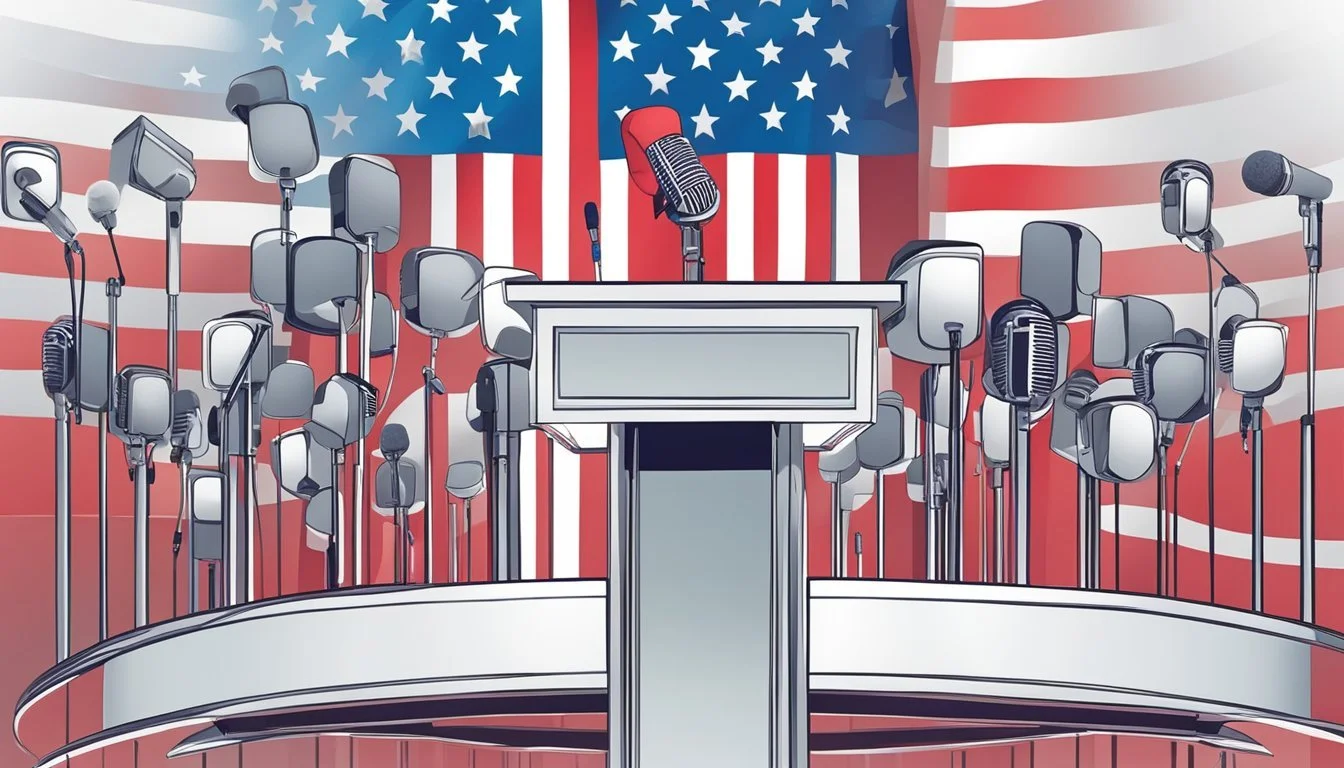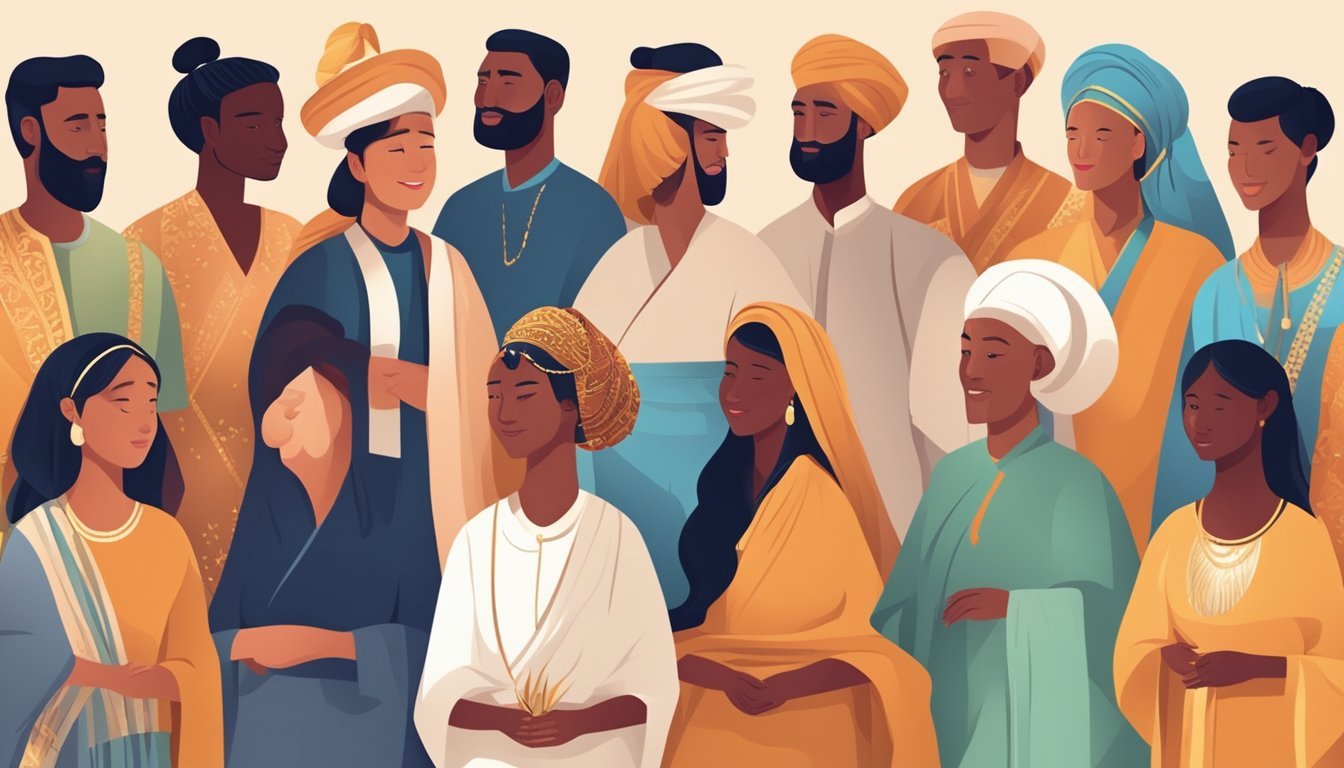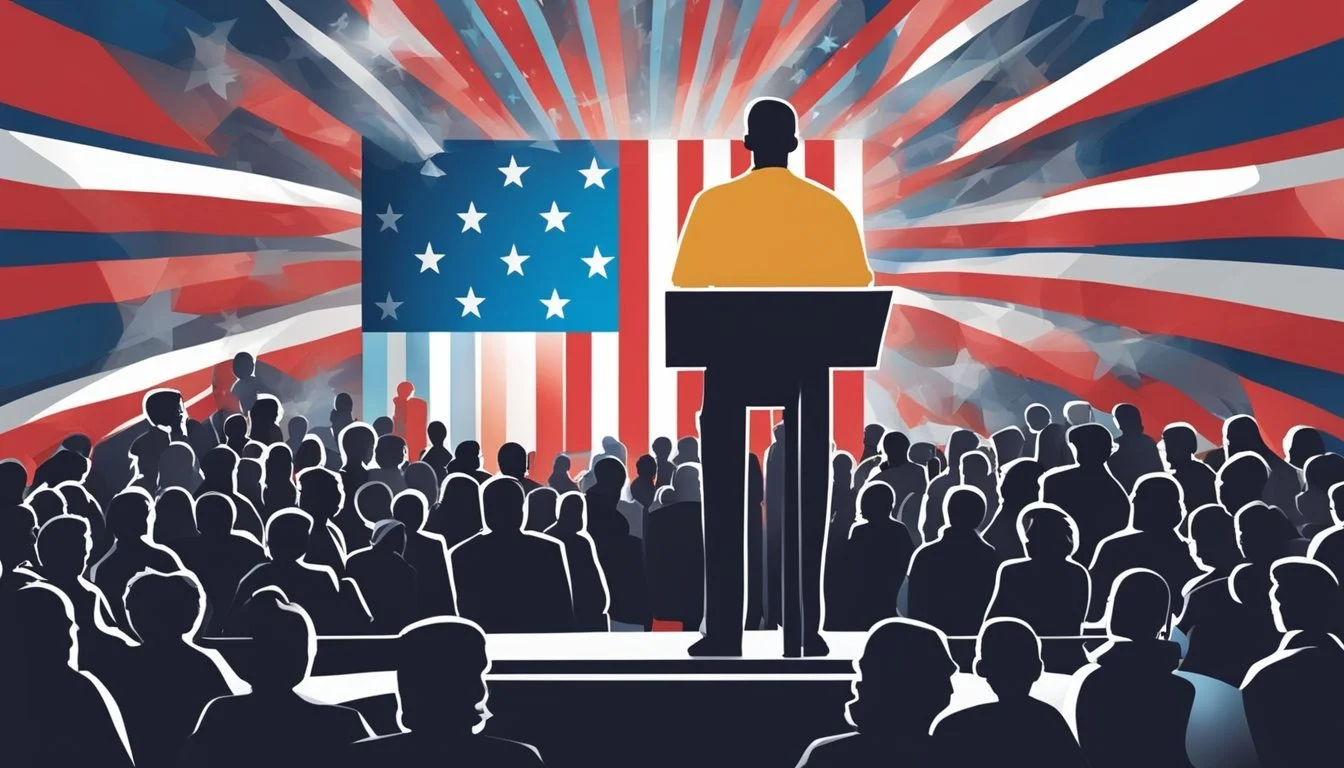Exploring the Ancestral Roots of the Former President
Tracing the 45th President's Ancestral Roots
Donald Trump, the 45th President of the United States, has German and Scottish roots. His paternal grandfather, Friedrich Trump, immigrated to America from Germany in 1885 at the age of 16. Trump's ethnic background reflects a classic American immigrant story, with his family's journey to the United States beginning in the late 19th century.
On his mother's side, Trump's heritage can be traced to Scotland. Mary Anne MacLeod, his mother, was born on the Isle of Lewis in the Outer Hebrides of Scotland before immigrating to the United States in 1930. This blend of German and Scottish ancestry has played a role in shaping Trump's identity and his connections to both European nations.
Trump's family history in America spans several generations, with his father Fred Trump building a successful real estate business in New York City. Donald Trump followed in his father's footsteps, expanding the family's real estate empire before entering politics and ultimately becoming the 45th President of the United States in 2017.
Early Life and Family Background
Donald Trump's early life was shaped by his family's immigrant roots and his upbringing in Queens, New York. His parents' backgrounds and his childhood experiences laid the foundation for his future business endeavors and political aspirations.
Parents and Ancestry
Fred Trump, Donald's father, was born in New York to German immigrants. Fred's parents came from Kallstadt, Germany. Mary Anne MacLeod, Donald's mother, emigrated from Scotland in 1930. She hailed from the Isle of Lewis in the Outer Hebrides, specifically from Tong, near Stornoway.
Fred and Mary Anne met in New York and married in 1936. They settled in Queens, where Fred worked as a real estate developer. The couple had five children, with Donald being their fourth.
Childhood in Queens
Donald Trump spent his formative years in Jamaica Estates, an affluent neighborhood in Queens. The Trump family lived in a 23-room mansion on Midland Parkway.
As a child, Donald attended private schools and was known for his energetic and assertive personality. His father's success in real estate exposed him to the business world from an early age.
Education
Trump's parents sent him to the Kew-Forest School in Forest Hills, Queens. At age 13, due to behavioral issues, he was enrolled at the New York Military Academy.
After graduating from the military academy in 1964, Trump attended Fordham University for two years. He then transferred to the Wharton School of Finance at the University of Pennsylvania.
In 1968, Trump graduated from Wharton with a bachelor's degree in economics. This education would later play a crucial role in his business career and political messaging.
Business Career
Donald Trump built a multifaceted business empire spanning real estate, entertainment, and branding. He transformed his father's company into a global enterprise known as The Trump Organization.
Real Estate Ventures
Trump's business career began in real estate, working for his father's company. In 1971, he took control and renamed it The Trump Organization. His first major Manhattan project was the renovation of the Commodore Hotel into the Grand Hyatt in 1976.
Trump Tower, completed in 1983, became his signature property and headquarters. The 58-story skyscraper on Fifth Avenue features a distinctive glass facade and luxurious amenities.
In 1988, Trump acquired the Plaza Hotel for $407 million. He renovated the iconic property but faced financial difficulties, leading to its sale in 1995.
Expansion into Entertainment
Trump ventured into entertainment in the 2000s. He co-produced and hosted "The Apprentice" on NBC from 2004 to 2015. The reality show featured contestants competing for a job in his organization.
The catchphrase "You're fired!" became synonymous with Trump. The show's success boosted his public profile and reinforced his image as a tough, successful businessman.
Trump also made cameo appearances in films and TV shows, further expanding his media presence.
Branding and Licensing
Trump leveraged his name as a valuable brand. He licensed the Trump name to various products and properties worldwide. These included:
Hotels and resorts
Golf courses
Residential buildings
Consumer goods (e.g., ties, water, steaks)
His 1987 book "The Art of the Deal" became a bestseller, enhancing his reputation as a business expert. Trump's branding efforts significantly contributed to his net worth, though exact figures remain disputed.
Family and Personal Life
Donald Trump's personal life has been marked by multiple marriages and relationships, as well as five children from three different wives. His family has played significant roles in both his business empire and political career.
Marriages and Relationships
Trump has been married three times. His first marriage was to Czech-American model Ivana Zelníčková in 1977. They divorced in 1992 after a highly publicized split. In 1993, Trump married actress Marla Maples, with whom he had been involved during his first marriage. This union ended in 1999.
Trump's current wife is Slovenian-born former model Melania Knauss. They married in 2005. Melania became the First Lady of the United States during Trump's presidency from 2017 to 2021.
Children
Donald Trump has five children. With Ivana, he had Donald Trump Jr. (born 1977), Ivanka (born 1981), and Eric (born 1984). These three children have been heavily involved in the Trump Organization and his political campaigns.
Trump's daughter with Marla Maples is Tiffany (born 1993). His youngest child, Barron (born 2006), is from his marriage to Melania.
Trump's adult children, particularly Donald Jr. and Ivanka, have taken on prominent roles in both his business ventures and political activities.
Political Career
Donald Trump's political career marked a significant shift from his business background to the highest office in the United States. His unconventional approach and controversial policies defined his tenure as president.
2016 Presidential Campaign
Trump launched his presidential bid in June 2015, positioning himself as a political outsider. He secured the Republican nomination, defeating 16 other candidates. His campaign focused on immigration reform, trade deals, and "Make America Great Again" slogan.
Trump faced Democrat Hillary Clinton in the general election. Despite losing the popular vote, he won the Electoral College, securing 304 electoral votes to Clinton's 227. His victory was considered a major upset in American politics.
Presidency and Policies
Trump took office on January 20, 2017. He implemented tax cuts, appointed conservative judges, and pursued an "America First" foreign policy. His administration focused on deregulation, border security, and renegotiating trade deals.
Key policies included:
Tax Cuts and Jobs Act of 2017
Travel ban on several Muslim-majority countries
Withdrawal from Paris Climate Agreement
Renegotiation of NAFTA into USMCA
Trump's response to the COVID-19 pandemic in 2020 faced criticism for downplaying the virus's severity initially.
Controversies and Impeachment
Trump's presidency was marked by numerous controversies and investigations. He faced two impeachments by the House of Representatives:
December 2019: Abuse of power and obstruction of Congress
January 2021: Incitement of insurrection following the Capitol riot
Both impeachments ended in acquittal by the Senate. Other controversies included:
Mueller investigation into Russian interference in the 2016 election
Allegations of conflicts of interest with his business dealings
Contentious relationship with the media, often labeling unfavorable coverage as "fake news"
Trump's term ended on January 20, 2021, following his defeat to Joe Biden in the 2020 election.
Cultural Influence
Donald Trump's ethnicity and background have shaped his cultural impact in significant ways. His media presence and linguistic style have left an indelible mark on American society.
Media Presence and Public Perception
Trump's reality TV fame on "The Apprentice" catapulted him into the national spotlight. The show portrayed him as a decisive business tycoon, influencing public perception of his abilities.
His populist rhetoric resonated with certain segments of the population. Trump's brash communication style and frequent use of social media platforms like Twitter transformed political discourse.
NBC, which aired "The Apprentice," played a role in shaping Trump's public image. The network's decision to sever ties with him in 2015 marked a turning point in his media relationships.
Influence on Language and Media
Trump's unique speaking style has been widely analyzed and imitated. His use of simple, repetitive language and catchy phrases like "fake news" entered the public lexicon.
Fact-checking organizations like Politifact gained prominence during Trump's presidency. They frequently assessed his statements, highlighting the complex relationship between politics and truth.
Trump's tendency to make unverified claims led to increased scrutiny of political speech. Media outlets adapted their reporting strategies to address the rapid spread of falsehoods in the digital age.
His ethnicity and immigrant background became focal points in debates about American identity and values. These discussions often reflected broader cultural tensions within the United States.
Legal Issues and Investigations
Donald Trump has faced numerous legal challenges throughout his business career and presidency. These range from scrutiny of his business practices to impeachment trials and ongoing inquiries after leaving office.
Business Practices Scrutiny
Trump's business dealings have drawn attention from authorities for decades. In the 1970s, the Justice Department sued Trump Management for alleged racial discrimination in housing rentals. The case settled without admission of wrongdoing.
The Trump Organization faced investigations into potential tax fraud and insurance misrepresentation. In 2022, the company was convicted on 17 felony counts related to tax fraud schemes.
Prosecutors alleged the company provided executives with luxury apartments and cars while underreporting compensation. The conviction resulted in fines, though Trump himself was not charged.
Impeachment Trials
Trump became the third U.S. president impeached by the House of Representatives. His first impeachment in 2019 stemmed from a phone call with Ukraine's president. The House charged Trump with abuse of power and obstruction of Congress.
The Senate acquitted Trump in February 2020. His second impeachment came in January 2021, days before leaving office. The House charged him with incitement of insurrection related to the January 6 Capitol attack.
The Senate trial occurred after Trump left office, resulting in acquittal. He remains the only president impeached twice.
Post-Presidency Inquiries
Trump faces ongoing investigations since leaving office. The Justice Department is examining his handling of classified documents found at Mar-a-Lago. In June 2023, he was indicted on 37 felony counts related to alleged mishandling of sensitive materials.
State and local prosecutors are also investigating Trump. The Fulton County, Georgia district attorney is probing potential election interference. In New York, the Manhattan DA charged Trump with falsifying business records related to hush money payments.
These inquiries span multiple jurisdictions and involve various aspects of Trump's conduct before, during, and after his presidency.
Ethnicity and Heritage
Donald Trump's ancestral roots trace back to Germany and Scotland. His family history reflects a blend of European immigrant experiences that shaped his heritage.
German Heritage
Trump's paternal lineage originates in Kallstadt, Germany. His grandfather, Friedrich Trump, immigrated to the United States in 1885 at age 16. Friedrich worked as a barber in New York before moving west to seek his fortune during the Gold Rush era.
Fred Trump, Donald's father, was born in New York to German immigrant parents. For years, the Trump family downplayed their German ancestry, likely due to anti-German sentiment following World War II.
The family claimed Swedish roots instead. This fabrication persisted for decades, with Donald Trump himself repeating it in his book "The Art of the Deal."
Scottish Roots
Trump's maternal side hails from Scotland. His mother, Mary Anne MacLeod, was born in 1912 on the Isle of Lewis in the Outer Hebrides.
She immigrated to the United States in 1930 at age 18, initially working as a domestic servant in New York. Mary Anne met Fred Trump at a party, and they married in 1936.
Trump has often emphasized his Scottish heritage, purchasing golf courses in Scotland and visiting his mother's birthplace. He maintains connections to Scotland through business interests and family ties.
Legacy and Impact
Donald Trump's presidency and business career have left a significant mark on American society, politics, and culture. His unconventional approach reshaped the Republican Party and influenced public discourse in unprecedented ways.
Contributions to Business and Politics
Trump's business acumen propelled him to fame before entering politics. He built The Trump Organization into a global real estate empire, with properties in New York City and around the world. His brash style and "Art of the Deal" persona made him a household name.
In politics, Trump's outsider status appealed to many voters. He championed an "America First" agenda, focusing on immigration control, trade renegotiation, and deregulation. His use of social media to communicate directly with supporters changed political campaigning norms.
Trump's presidency saw major tax cuts, conservative judicial appointments, and a shift in foreign policy priorities. He brokered Middle East peace agreements and initiated dialogue with North Korea.
Cultural and Social Impact
As the 45th President, Trump's rhetoric and policies polarized American society. His statements on race, immigration, and gender sparked intense debates. Trump's "Make America Great Again" slogan resonated with supporters but alienated critics.
His presidency coincided with increased political activism and protests. The #MeToo movement gained momentum during this time, partly in response to Trump's past comments about women.
Trump's frequent clashes with the media altered the relationship between the press and the presidency. His claims of "fake news" eroded trust in traditional news sources for some Americans.
Long-term Influence on the Republican Party
Trump's populist message and unconventional style transformed the Republican Party. He shifted the party's focus to working-class voters and America-first policies. His influence remains strong among the GOP base even after leaving office.
The party adopted a more confrontational approach to politics under Trump's leadership. Traditional conservative principles were sometimes overshadowed by loyalty to Trump himself.
Trump's presidency sparked debates within the party about its future direction. Some Republicans embraced his populist agenda, while others sought to return to pre-Trump conservatism.
His continued involvement in politics post-presidency maintains his sway over the party. Trump's endorsements carry significant weight in Republican primaries across the country.






